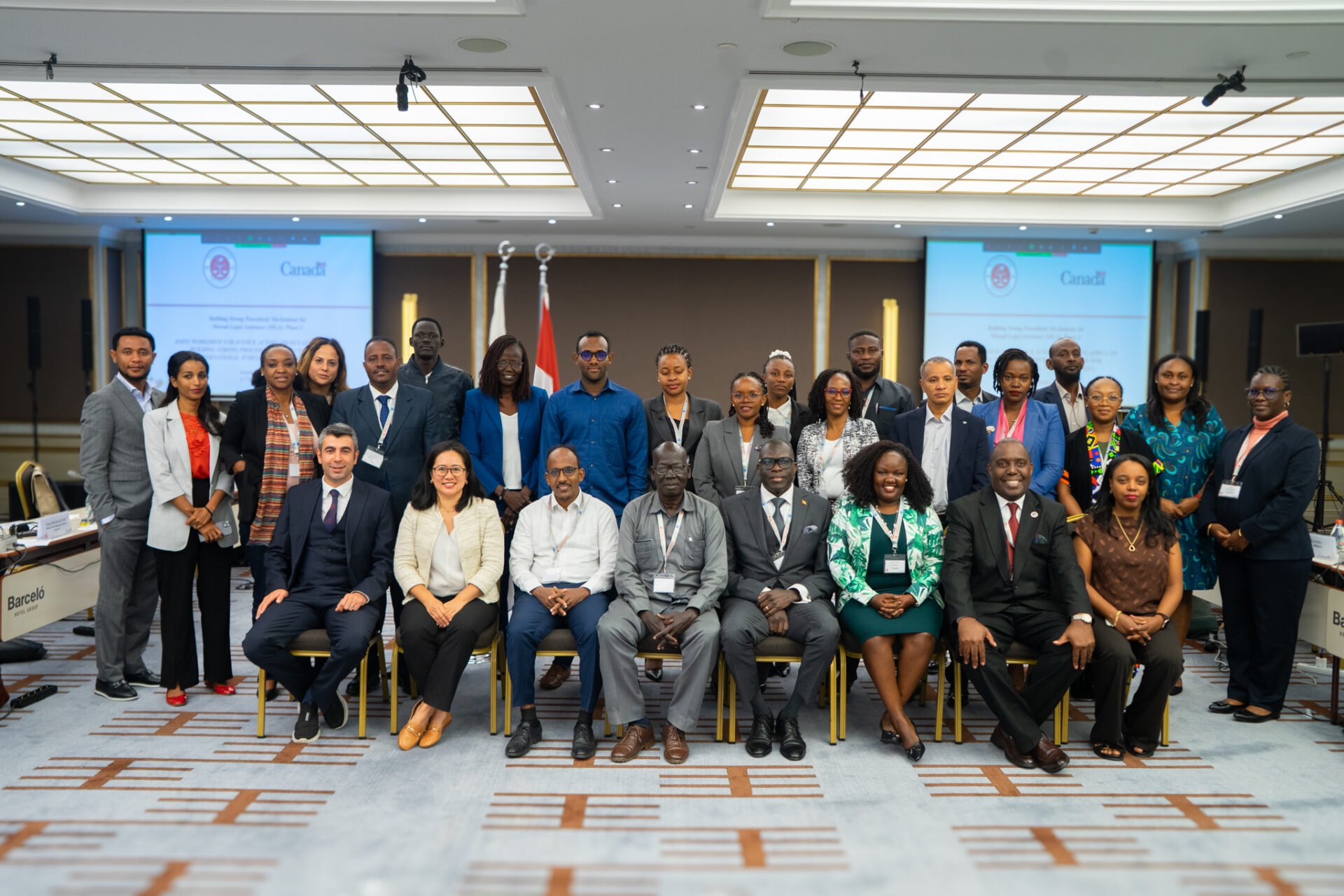
On 6–7 October, the IIJ convened a Joint Workshop for Justice Actors from East Africa on Building Strong Procedural Mechanisms for International Judicial Cooperation (IJC). The event falls under the Canada Phase II Project on enhancing international judicial cooperation between Kenya and Somalia, and beyond.
Generously funded by Global Affairs Canada | Affaires mondiales Canada, the workshop was in Istanbul, Türkiye, and brought together regional criminal justice practitioners and competent authorities from Kenya, Somalia, South Sudan, Ethiopia, Tanzania, and Uganda. Participants introduced their judicial and legal frameworks, and shared challenges they face due to current security threats and cross border crimes that could be addressed through stronger judicial cooperation and enhanced multilateral collaboration.
Nejat Abdulrahman Issa, Head of the Security Sector Programme at The Intergovernmental Authority on Development (IGAD) in Eastern Africa, highlighted IGAD’s work on peace and security, while Citalin C. de la Mora, Crime Prevention and Criminal Justice Officer at United Nations Office on Drugs and Crime (UNODC), shared UNODC’s research, toolkits, and good practices relevant to strengthening international judicial cooperation. Judge Murat Karagöz, Directorate General for Foreign Relations and European Union Affairs, Ministry of Justice of the Republic of Türkiye shared Turkiye’s experience in handling extradition requests.
Phase I of the project, launched in 2022 under the IIJ Global Central Authorities Initiative (GCAI), supported the development of national roadmaps and Mutual Legal Assistance (MLA) frameworks for Kenya and Somalia. Phase II, while maintaining this focus, expands efforts to strengthen IJC mechanisms across the East African region to more effectively address cross border security threats and enhance collaboration among neighbouring countries facing common challenges.
Building on an IJC needs and gaps assessment conducted across the six participating countries, this regional workshop focused on exchanging good practices, streamlining IJC processes, and reinforcing regional networks to improve cooperation in the investigation and prosecution of serious cross border crime and terrorism.
The workshop’s overarching goals were to enhance understanding of partner countries’ IJC legal frameworks, to strengthen relationships among competent authorities across the six nations and to increase their exposure to existing, cost-free tools to ease the process of handling mutual legal assistance and extradition requests . These efforts aim to build sustainable bilateral and regional capacity for investigating and prosecuting organised crime and terrorism cases
